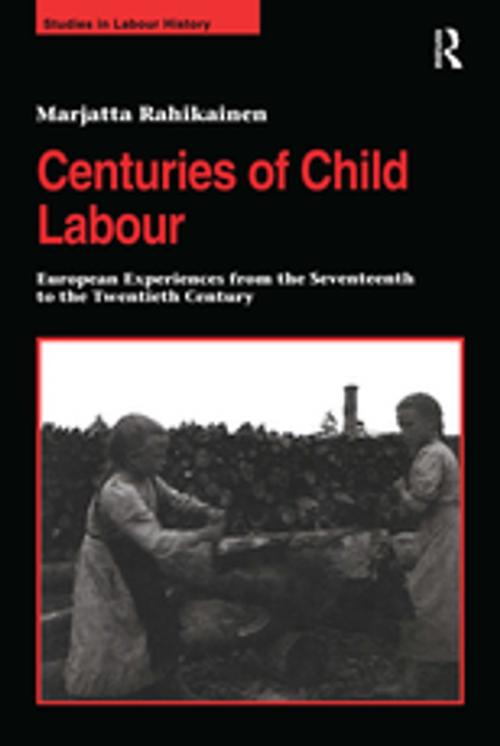Centuries of Child Labour
European Experiences from the Seventeenth to the Twentieth Century
Nonfiction, History| Author: | Marjatta Rahikainen | ISBN: | 9781351952873 |
| Publisher: | Taylor and Francis | Publication: | July 5, 2017 |
| Imprint: | Routledge | Language: | English |
| Author: | Marjatta Rahikainen |
| ISBN: | 9781351952873 |
| Publisher: | Taylor and Francis |
| Publication: | July 5, 2017 |
| Imprint: | Routledge |
| Language: | English |
Most historical studies of child labour have tended to confirm a narrative which witnesses the gradual disappearance of child labour in Western Europe as politicians and social reformers introduced successive legislation, gradually removing children from the workplace. This approach fails to explain the return or continuance of child labour in many affluent European societies. Centuries of Child Labour explains changes in past child labour and attitudes to working children in a way that helps explain the continued survival of the practice from the seventeenth through to the late twentieth centuries. Centuries of Child Labour conveys a richer sense of child labour by comparing the experiences of the Northern European periphery to the paradigmatic cases of Britain,and France. The northern cases, drawing heavily on empirical evidence from Sweden, Finland and Russia, test received ideas of child labour, through comparisons with Britain, France, Germany, Italy and Spain. Presenting the children themselves as the main protagonists, rather than the law makers, industrialists and social commentators of the time, Marjatta Rahikainen provides fresh information and perspectives, offering revelations to readers familiar only with the situation in France and Britain.
Most historical studies of child labour have tended to confirm a narrative which witnesses the gradual disappearance of child labour in Western Europe as politicians and social reformers introduced successive legislation, gradually removing children from the workplace. This approach fails to explain the return or continuance of child labour in many affluent European societies. Centuries of Child Labour explains changes in past child labour and attitudes to working children in a way that helps explain the continued survival of the practice from the seventeenth through to the late twentieth centuries. Centuries of Child Labour conveys a richer sense of child labour by comparing the experiences of the Northern European periphery to the paradigmatic cases of Britain,and France. The northern cases, drawing heavily on empirical evidence from Sweden, Finland and Russia, test received ideas of child labour, through comparisons with Britain, France, Germany, Italy and Spain. Presenting the children themselves as the main protagonists, rather than the law makers, industrialists and social commentators of the time, Marjatta Rahikainen provides fresh information and perspectives, offering revelations to readers familiar only with the situation in France and Britain.















